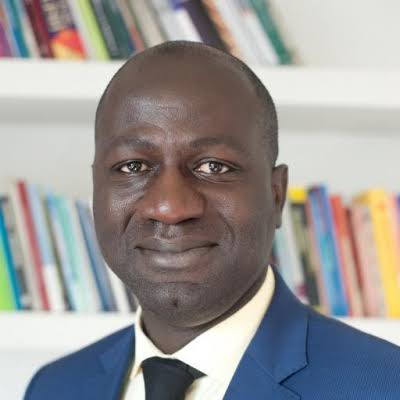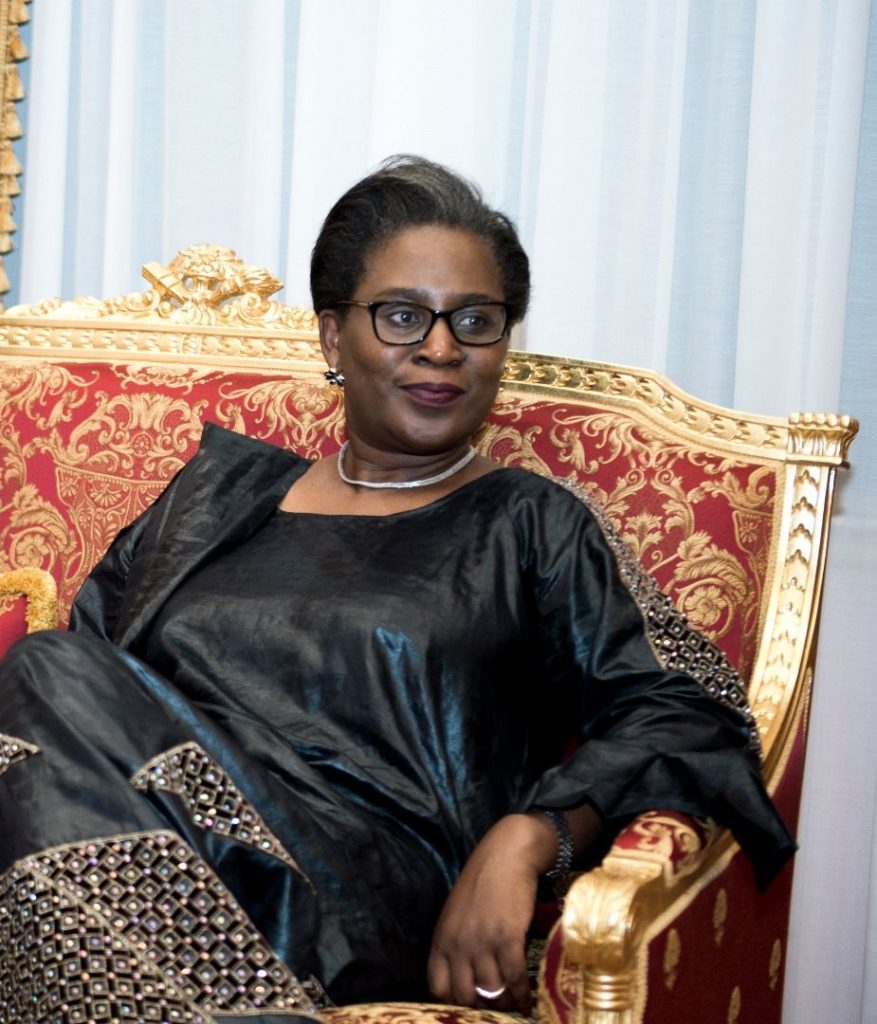Infrastructure is Much More Than Bricks and Mortar
By Carl Manlan and Michael Mapplestone
Often when people speak about the need for infrastructure development in Africa, they are discussing bricks and mortar, improved physical structures such as transportation links, hospitals and schools. But creating a world in which the African continent can truly flourish and provide long term stability and growth for millions of people relies – arguably more heavily – on invisible infrastructure, the hidden strength behind those physical health centres, roads and community hubs.

Five years ago, the Ecobank Foundation (EcobankFoundation.org) collaborated with the Charities Aid Foundation (CAF) to design a strategy that would help us become the ‘go-to’ partner in Africa in development of improved access to health and education, along with financial inclusion. It has been a rewarding journey.
With a financial institution as our foundation, we needed to explore how we could best deliver on what was, without doubt, an ambitious goal. We wanted to leverage what we already knew how to do in order to deliver the Foundation’s mission to achieve social change, while also helping to battle life-threatening diseases such as HIV/AIDS, tuberculosis, and malaria.
Read also:https://afrikanheroes.com/2020/07/17/factors-impacting-the-development-of-infrastructure-in-africa/
We have also been guided by CAF’s more recent in-depth research into growing giving in four countries in Africa – Tanzania, Kenya, Uganda, and South Africa. With an aim to capturing the size and scope of giving among these countries’ respective emerging middle classes, the reports examined not just individual giving, but also the enabling environment. Recommendations included supporting the development of the invisible infrastructure which supports civil society. Among them was promoting new ways of safe and secure giving to develop the potential for mass engagement and individual giving.
For the Ecobank Foundation, the need for secure giving translated into using the access given by the Ecobank Mobile App to reach potential donors, be they local or part of the African diaspora and help them to give across Africa. It meant engaging with our staff to test dedicated fundraising appeals such as World Malaria Day and was used successfully to fundraise for the victims of Cyclone Idai in March 2019 and other initiatives that build on the giving culture of Ubuntu.
To move towards our goals, our foundation has also focussed on harnessing the talents of Ecobank employees across 33 countries. In addition to our direct financial support of malaria prevention programmes in Mozambique and Nigeria, we are supporting the Global Fund and its local partners to develop technology-led solutions to finance challenges such as cash management and delivering mobile money support. Another example of this is providing mobile banking services to street children in Togo with a local charity acting as custodian in order to safeguard their small pockets of savings.
This is a strong example of what we knew from the outset about successful corporate social responsibility – it will only translate into real-world impact if it is borne out of the local context – you have to have a deep understanding of the problem you are hoping to help solve in order to make best use of your resources.
For Ecobank Foundation, a cornerstone of this approach was the collaboration with the Ecobank Academy, a corporate university which provides training for finance managers working in health programmes that supported large relief organisations such as The Global Fund and the United Nations Population Fund (UNFPA).
Drawing on our existing strengths, we were able to create an initiative to bridge the knowledge gap between financial institutions and colleagues working in development on the ground. Leadership and financial management training was also specifically designed for the International Federation of the Red Cross and Red Crescent Africa (IFRC Africa) to support national societies.
From here, they were able to not only improve their individual governance and reporting standards, demonstrate their professionalism and thereby strengthen their relationships with funders, they were also able to connect with colleagues in similar organisations in other regions in order to share their successes and lessons learned along the way.
Therein lies a crucial piece of that ‘invisible’ knowledge infrastructure that will help to solve the transformation puzzle of development in Africa.
Amid our work in support of those affected by the COVID-19 pandemic, our foundation has not lost sight of the battle against malaria, which continues to inhibit African development. We launched the Zero Malaria Business Leadership Initiative and joined with the RBM Partnership and African Union Commission Zero Malaria Starts With Me campaign so that we can continue to work with like-minded institutions.
Despite the current crisis, we have cause to be hopeful. Both Ecobank Foundation and CAF are committed to working together to help create not only those desperately needed basic systems and services, but also the more complex and detailed and ‘invisible’ civil society infrastructure which, done thoughtfully and with a sense of purpose, provide tangible improvement to the lives of millions.
Carl Manlan is the Chief Operating Officer at the Ecobank Foundation. Michael Mapstone is the Director of External Affairs and Global Engagement at the Charities Aid Foundation (CAF).
Kelechi Deca

Kelechi Deca has over two decades of media experience, he has traveled to over 77 countries reporting on multilateral development institutions, international business, trade, travels, culture, and diplomacy. He is also a petrol head with in-depth knowledge of automobiles and the auto industry




